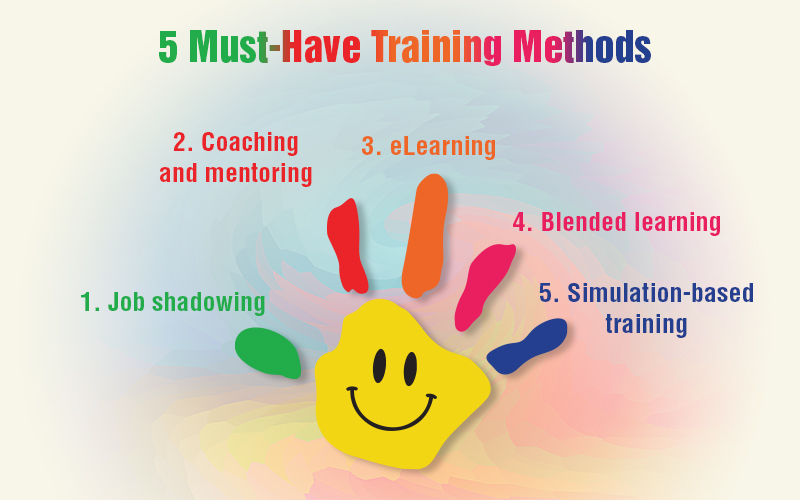8 Training Areas in the Manufacturing Sector Improved through Online Translations

Imparting employee training in native languages is very effective, and therefore, translating online courses is much needed in multinational companies. Many US manufacturing firms have expanded their operations in overseas markets in the last two decades. So, it’s particularly important for organizations in the manufacturing sector, as they have many blue collared workers and compliance regulations are stringent.
→ Download eBook- Making a Business Case for eLearning [eBook]
Training translation is essential for non-English-speaking employees, as they work on heavy machinery and equipment that are crucial for production. Even if a small mistake arises in handling the machinery, the whole plant production would go for a toss.
Now most companies use eLearning to extend training for its cost-effectiveness and flexibility. However, you can’t deliver online courses prepared in English for multilingual employees in other countries. Translating and localizing online courses into the native languages of the workforce will impart effective training.
So, let’s look at the various types of online training programs that can be more effective if delivered in the native languages of employees.
1. Confusion-free Compliance Regulations
Compliance courses help your company impart knowledge of the statutes and mandatory procedures to employees. They are stipulated by regulatory authorities on the various standards that are to be followed by the company. Compliance training in the manufacturing sector, in most cases, is used to address these issues.
Translating online compliance training into employees’ native languages is crucial because legal rules & regulations are often tricky and confuse workers when they go through them in English. Though they look trivial, violating them brings compensation and lawsuits against your organization. So, translating online compliance training is beneficial to both the company and the employees.
2. Industrial Safety Training
Effective safety training prevents accidents and a number of untoward incidents at the workplace. It makes employees aware of the dos and don’ts of industrial safety.
Translating online safety courses is significant as manufacturing facilities operate units in various countries across the globe. All employees in these countries may not understand English well and most of the field workers in these industries are blue collared. Understanding safety concepts and procedures is better in their native languages.
3. Anti-Graft Rules
Manufacturing companies, which have an international presence, need to translate courses on anti-graft regulations into the native languages of their employees. This is because the workforce understands legal clauses better when they are explained in their native language. Multinational manufacturing companies also need to adhere to international anti-corruption regulations such as Inter-American Convention Act and the OECD’s Convention to combat bribery in international business transactions.
The Foreign Corrupt Practices Act (FCPA) in the US deals with issues of graft; the Bribery Act of Britain, Corruption of Foreign Public Officials Act in Canada, these explain corruption and bribes, and the compensation and lawsuits companies need to face in case of violation, and how to avoid them.
4. GMPs
Manufacturing facilities need to adhere to stipulated Good Manufacturing Practices (GMPs). Failure to do so could lead to product recalls, which result in serious financial losses and loss of reputation. Therefore, manufacturing companies need to make every effort to impart effective training on GMPs.
Training provided on GMPs in native languages makes it effective for employees in the manufacturing sector. Employees can get to the fundamentals of GMPs when online courses are delivered in their native language.

eLearning Trends for 2024
Seal the Deal with Success
- Training Formats for Upskilling and Reskilling
- Popular AI Tools for L&D
- Mastering the New-Age Learning Formats
- And More!
5. Product Training
It’s crucial to translate online product training into multiple languages due to these reasons:
- Improved bottom line: Sales force and service technicians need to have good training on the products of the organization to increase sales and customer satisfaction. When online product training is in the native languages of these employees, they learn more efficiently and achieve sales targets.
- Product Info to Extended Enterprise: Translating product training helps distributors and other channel partners to be aware of the product features and explain its advantages to prospects. Similarly, customers also need to know how to use the product efficiently. For that, translating the product features and benefits into major languages will help expand in regional markets. So, it is better to translate your product training courses into the native languages of the people in your extended enterprise.
6. Training on Processes and Quality Standards
Training on manufacturing processes and quality standards is crucial to improving the productivity in manufacturing facilities. Comprehensively designed online courses, delivered in the native languages of employees can impart effective training on manufacturing processes and quality standards.
7. Training on Complex Machinery
In manufacturing firms, it’s important to extend training to employees using heavy, complex, and sophisticated machinery to effectively operate the equipment.
In a majority of the cases, blue-collared workers do these jobs. Most of them are not well-versed in English. So, translating online courses into their native languages is critical for effective equipment handling.
8. Supply Chain Management(SCM)
Adhering to the best Supply Chain Management practices makes companies ensure there are no breakdowns in production. Manufacturing companies use SCM software tools to enhance the efficiency of their supply chains. To effectively train employees on them, translate the training into employees’ regional languages.
So, imparting employee training in native language is very effective. Focus on translating training courses to get better business results and secure your company’s position in global markets.





